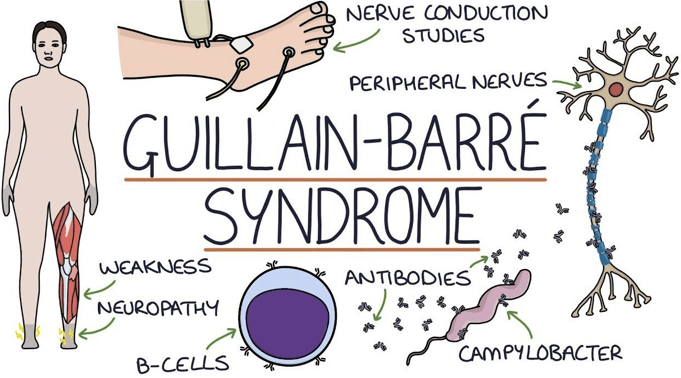While caring for a client with Guillain-Barre syndrome, which finding should the practical nurse (PN) report to the charge nurse?
Irregular heart rate.
Profuse diaphoresis.
Lower leg weakness.
Full facial flushing.
The Correct Answer is A
This is the finding that the PN should report to the charge nurse because it indicates a possible complication of Guillain-Barre syndrome, which is autonomic dysfunction. This can affect the cardiac, respiratory, and gastrointestinal systems and cause life-threatening problems such as arrhythmias, hypotension, or respiratory failure. The PN should monitor the client's vital signs closely and report any abnormal changes.

Nursing Test Bank
Naxlex Comprehensive Predictor Exams
Related Questions
Correct Answer is C
Explanation
A) Incorrect- While understanding the frequency that a problem occurs can provide context to its significance and potential impact, it is not the most important consideration when gathering evidence for evidence-based decision-making. The frequency alone does not ensure that the evidence collected will be directly applicable to the current situation.
B) Incorrect- Personal values are subjective and may influence an individual's perspective, but they are not the primary consideration when gathering evidence for evidence-based decision- making. Evidence-based practice aims to rely on objective and scientifically validated information rather than personal values, which can vary greatly among individuals.
C) Correct- The most important consideration when gathering evidence is its relevance to the specific situation at hand. Evidence must directly address the problem and clinical question, ensuring that the information collected is applicable, appropriate, and reliable for guiding decision-making in the current context.
D) Incorrect- While past experiences can offer insights, they are not the most important consideration for evidence-based decision-making. Relying solely on past experiences may not account for new developments, changing guidelines, or unique aspects of the current situation that were not present in previous encounters.
Correct Answer is D
Explanation
A) Incorrect- While notifying the healthcare provider is an important step to take after an error, it's not the first action the nurse should take. The immediate concern is the client's safety and well-being, so assessing the client for any adverse effects of the incorrect dose is the priority.
B) Incorrect- Documentation is important, but it's not the first action to take after administering an incorrect medication dose. The nurse should prioritize assessing the client for any adverse effects and ensuring their immediate safety.
C) Incorrect- Completing an incident report is an important step to document errors and prevent future occurrences, but it's not the initial action to take. First, the nurse should focus on the client's well-being by assessing for adverse effects.
D) Correct- Assessing the client for any adverse effects is the immediate priority when an incorrect dose of medication has been administered. The nurse's first concern is the safety and health of the client. Once the client's condition has been assessed and stabilized, further actions can be taken, such as notifying the healthcare provider and completing incident reports.
Whether you are a student looking to ace your exams or a practicing nurse seeking to enhance your expertise , our nursing education contents will empower you with the confidence and competence to make a difference in the lives of patients and become a respected leader in the healthcare field.
Visit Naxlex, invest in your future and unlock endless possibilities with our unparalleled nursing education contents today
Report Wrong Answer on the Current Question
Do you disagree with the answer? If yes, what is your expected answer? Explain.
Kindly be descriptive with the issue you are facing.
